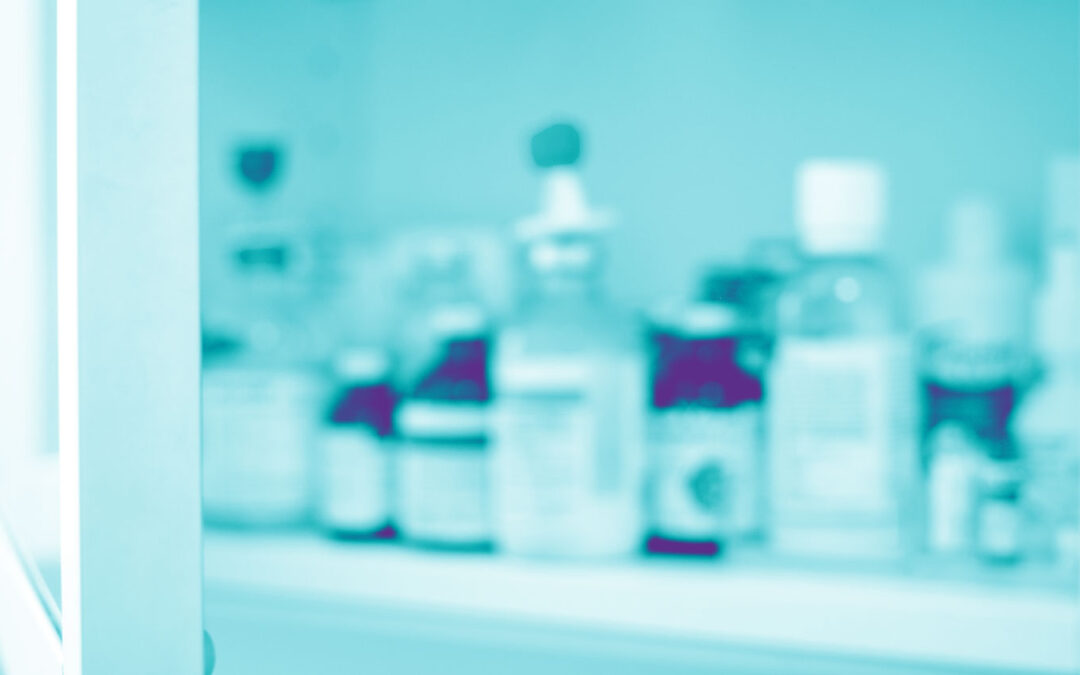Seeking Help for Over-the-Counter Drug Addictions
According to a study from the University of Michigan, up to 40% of high school students had taken a drink of alcohol within the previous month. 25% of the students had smoked a cigarette. 5% of them had abused an over-the-counter drug like cough syrup or cold medicine.
Nonprescription drug abuse can be a life-altering for susceptible individuals, and these types of medications can be combined with alcohol, prescription drugs, or other nonprescription medications to create potent — and sometimes lethal — cocktails with major addiction potential.
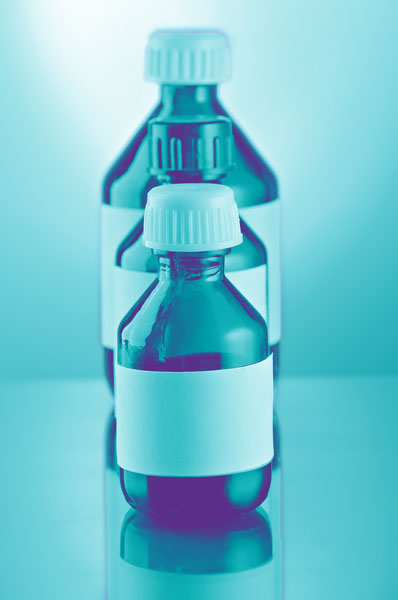
How Are Over-the-Counter Medications Different Than Prescription Ones?
OTC medications are designed to be bought directly by a patient without a doctor’s prescription so that the patient may treat his or her own symptoms. It’s common for medications for heartburn, allergies, or colds to be stored in pharmacies’ shelves and readily available for purchase. Are these medications safe? Yes, if they are used according to their directions, but sometimes, whether intentionally or unintentionally, OTC medications can be abused by individuals looking for a high, an out-of-body-experience, or an experiment to do with (usually teenaged) friends.
For those who have never dealt with an addiction, it can seem odd or silly that someone would take large doses of cold medicine to get that “high” feeling. For those dealing with an addiction, it might be difficult to consider quitting. Remember — addictions aren’t logical.
Which Over-the-Counter Medications Can Be Abused?
If you are reading this as a parent who has heard of OTC drug abuse, it might comfort you to know that not all medications can lead to abuse. You don’t hear about kids becoming addicted to Tylenol, for example. It takes a certain type of substance — and a certain type of person — to begin the cycle of drug abuse and addiction.
OTC medications are safe in appropriate doses. When taken for a cough or cold a few times a year, these medications can be wonderful tools that can set someone on the path to healing. When taken by an individual as an experiment or as the result of after-school peer pressure, or by a teenager trying to self-medicate anxiety, depression, or another mental health condition, these medications can be harmful and even deadly.
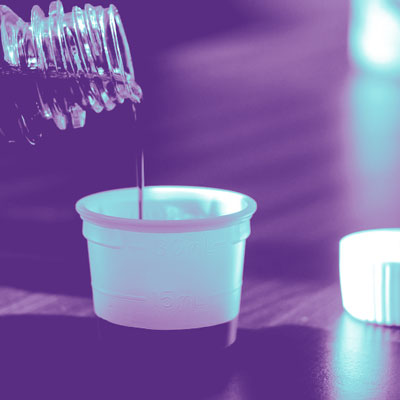
Cough Medicines
A small dose of dextromethorphan can treat a cough, but what can a large dose do? Depending on how many milligrams you ingest, it can either cause mild euphoria, hallucinations, and loss of coordination on the lower end. If you overdose, you may suffer from signs of poisoning like vomiting, blacking out, breathing problems, and even brain damage.
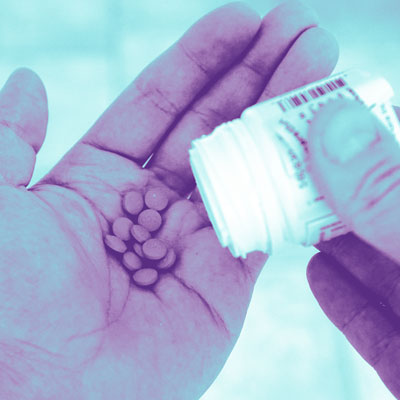
Motion Sickness Medicines
It might surprise you to know that motion sickness medications have abuse potential. Dimenhydrinate, in regular doses, can treat car sickness, seasickness, and vertigo that you might feel while riding on a moving vehicle or airplane. In high doses, it acts as a powerful hallucinogen. It can cause nausea, seizures, or death when abused.
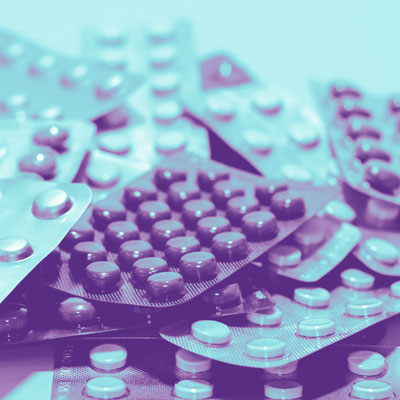
Cold Medicines
Cold medicines can contain a potent cocktail of cough medicine, strong antihistamines like diphenhydramine, and pseudoephedrine. Pseudoephedrine specifically can cause hallucinations in high doses, and those who abuse this drug might suffer from seizures, shortness of breath, and a racing heartbeat. If your cold medicine includes other ingredients, keep in mind that taking large doses of these can lead to unwanted side effects as well.
Who Is At Risk for This Type of Addiction?
Young people are at high risk for OTC drug abuse and addiction due to the fact that these medicines are readily available in their parents’ medicine cabinets at home, at friends’ houses, and in stores and local pharmacies. If a younger person wants to use an addictive substance, he or she might have a difficult time obtaining “real” drugs due to a parent’s monitoring. According to the FDA, dextromethorphan is a great risk for teens. Currently, around 3.1 million adolescents from ages 12-25 have tried an OTC drug to get high.
Prescription drugs are more difficult to obtain because someone would need a doctor’s approval and a prescription for the substance. Alcohol can be easily found, but if you are not yet of the legal drinking age, it might be harder to get your hands on a bottle. If you’ve developed an addiction to cough syrup, though, it’s possible that all you would need to do is look in your mom’s medicine cabinet for your next dose. This accessibility makes OTC drugs especially dangerous for teens who live with their parents.
What Does OTC Drug Withdrawal Look Like?
If someone decides to stop drinking alcohol or taking addictive drugs — even OTC drugs — they will go through a period of withdrawal in which their body tries to get out as much of the drug as possible to maintain homeostasis. The withdrawal process for OTC drugs will look similar to that of alcohol or “street” drugs like cocaine, or prescription opioids. Here are some common symptoms to watch out for:
- Insomnia
- Flu-like symptoms like chills and a fever
- Agitation and restlessness
- Mood swings
- Irritability
- Intense cravings for the substance
If you’re worried about these signs for your own sake, it might help to talk to your doctor or a professional at a rehab center to assess your symptoms. If you are reading this list to assess whether a loved one is suffering from addiction, the most obvious symptoms from your perspective might be the changes in mood, loss of interest in things your loved one once enjoyed, and secretive behavior like lying and hiding things. Addictions can be insidious, too: Some people learn to mask addictive behaviors so well, like the stereotype of the high-functioning alcoholic, that there may be no outward signs. For this reason alone, it’s best to have a conversation with your loved one about your concerns.
What Are the Signs of OTC Drug Addiction?
When you are assessing yourself or someone else for addiction, the signs, regardless of the substance, are much the same. Here are just a few to look out for:
- Mood swings
- Outbursts of anger
- Frequently buying OTC drugs for a “cold” or “cough” despite not being sick
- Browser history displaying OTC drug sites
- Giving up hobbies that he or she enjoyed
If you are a parent of a teenage son or daughter and you suspect him or her of abusing OTC drugs, it will not be easy to clarify this with your child. If you find it difficult to approach your child with this conversation, consider enlisting the help of another family member, a school counselor, a trusted teacher, or a trained mental health professional who can talk to your child in an unbiased, judgment-free manner.
How Can I Get Help?
Dealing with over-the-counter drug addiction, while the substances are different, is not much different than battling an addiction to alcohol, cocaine, or oxycodone. While the drug of choice might be a legal substance, the addiction potential of the drug and the need you feel to use it is similar. If you or a friend or family member is trying to figure out how to get clean, it can be difficult in this case because over-the-counter drugs are available to everybody. Prescription drugs are more difficult to obtain because you need a doctor’s approval and a prescription for the substance. Alcohol can be easily found, but if you are not yet of the legal drinking age, it might be harder to get your hands on a bottle.
If you or someone you love is dealing with an OTC drug addiction, remember that this type of drug abuse is as serious — and can lead to as much bodily damage — as drugs of other types. If you would like to talk to someone about OTC drugs, their abuse potential, or how to find addiction treatment for yourself or a loved one, contact us at Clean Recovery Centers to begin the healing process today.

